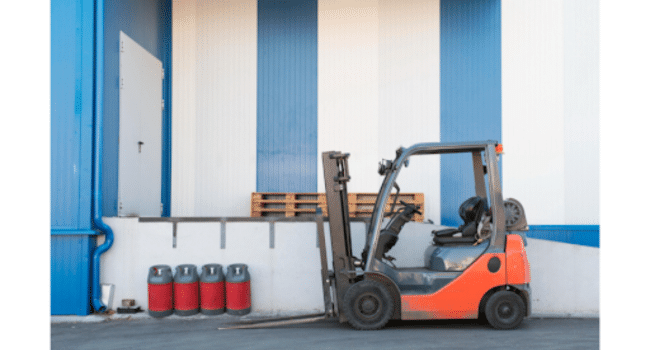Table of Contents
For decades, diesel forklifts were the choice of preference for companies working with heavy weights. Yanmar engine parts were considered rugged, powerful, and made for heavy-duty use. Times have changed. With higher fuel prices, more stringent emission standards, and increasing green-mindedness, companies are rethinking their decision. This is where the electric forklift truck comes into picture. They are a useful material handling equipment that’s greener, cleaner, and more affordable.
If you’re still on the fence about whether to switch, let’s break it down. What makes an electric forklift truck the better choice over diesel? And more importantly, does it deliver the same power and efficiency? Let’s get into it.
Fuel Costs vs Charging Costs
Diesel-powered forklifts run on diesel which means every operation requires refuelling, and with fluctuating fuel prices, that cost can add up fast. On the other hand, an electric forklift truck runs on rechargeable batteries, making it significantly cheaper to operate in the long run.
Companies that run multiple shifts per day will particularly feel the difference. Diesel costs add up quickly, whereas electric forklifts allow opportunity charging during breaks, reducing downtime and keeping operations running smoothly.
Less Maintenance, Fewer Headaches
Diesel forklifts need routine upkeep; oil, engine tune, filter changes, and the occasional pain of breakdowns. The more complicated equipment, the bigger the potential breakdowns.
Electric forklifts, on the other hand, have fewer parts to move. No engine to maintain, no exhaust system to worry about, no transmission to strain. That means less wear and tear, reduced maintenance, and fewer surprise breakdowns. When your forklifts are operating with maximum efficiency without constant downtime, productivity just increases naturally.
Many businesses, including those using Godrej’s electric forklifts, report that maintenance costs drop by up to 50% after switching from diesel. That’s not just an operational benefit, it’s a financial one too.
Zero Emissions and a Cleaner Work Environment
Sustainability isn’t a catchword anymore; it’s a necessity for business. With tighter emissions standards and global efforts toward going green, the carbon footprint must be cut down.
A diesel forklift emits carbon dioxide, nitrogen oxides, and particulate matter, all contributing to air quality problems and breathing issues. It is a very serious issue when it comes inside, as emission controls need to be put into place to contain emissions.
Electric forklifts, however, are totally emissions-free. They are quiet running, don’t need ventilation, and help make the workplace cleaner and safer. No wonder then that businesses engaged in warehouse work, food production, and logistics are quickly making the transition.
Noise Levels
Diesel forklifts are loud. If you’ve ever been in a warehouse filled with them, you know what we’re talking about. The constant engine noise can be distracting for workers, affecting concentration and overall productivity.
Electric forklifts? Whisper-quiet in comparison. They operate smoothly, reducing workplace noise pollution and making communication easier. Imagine a warehouse where operators can talk to each other without shouting over the hum of diesel engines. Sounds better, right?
For businesses that operate in environments where noise control is essential like indoor storage facilities or retail warehouses, electric forklifts make a world of difference.
Compact, Agile, and Built for Indoor Use
Diesel forklifts are powerful, but they’re also bulky and difficult to manoeuvre, especially in tight warehouse spaces. If your operation involves navigating narrow aisles or stacking inventory on high racks, handling a diesel forklift can feel like steering a truck through Mumbai’s peak-hour traffic.
Electric forklifts, by design, are more compact and highly manoeuvrable. They can turn in tighter spaces, making them perfect for indoor storage and warehouse operations.
They also have instant torque, meaning faster acceleration and better control, essential features for operators working in high-paced, high-precision environments.
Longer Lifespan, Smarter Investment
Let’s talk about lifespan. Diesel forklifts may have been the industry standard for years, but electric models last significantly longer. Why? No combustion engine, no overheating issues, and fewer mechanical failures.
A diesel forklift engine wears down over time, needing frequent overhauls to keep running. An electric forklift, especially a lithium-ion powered one, can last for thousands of charge cycles, making it a more durable long-term investment.
Companies that switch to electric forklifts find that their total cost of ownership is significantly lower, with less downtime, lower repair costs, and longer-lasting performance.
Battery Technology Is Better Than Ever
Those days of battery-operated forklifts translating to limited run times and extensive charging hours are behind us. Lithium-ion forklifts today, such as those Godrej creates, can operate longer, charge quicker, and do more than ever.
In contrast to lead-acid batteries, which weaken with time, lithium-ion batteries provide as much as 5,000 charge cycles. That is four times the life span of standard lead-acid batteries. In addition, they enable opportunity charging, where you can charge them during brief pauses rather than having to wait for full recharge.
This type of battery life allows companies not to worry about running out of juice during a shift. With proper charging infrastructure, electric forklifts can readily surpass their diesel counterparts in productivity and uptime.
Storage and Space Efficiency
Diesel forklifts require dedicated refuelling stations, which means valuable floor space gets taken up by fuel storage and maintenance areas. This isn’t an issue with electric forklifts.
Since electric forklifts only need a charging station, businesses have more space to use for storage racking shelves and operational needs. This is especially beneficial in warehouses where every square metre counts.
Conclusion
If anything is sure about the future of material handling equipment, it’s that electric forklifts are here to stay. Increasingly, more companies are realising that the advantages of electric models far exceed the conventional diesel ones. Those companies that adapt early to this trend; particularly with industry pioneers like Godrej providing state-of-the-art electric forklifts, will have a competitive advantage in efficiency, cost savings, and sustainability.
